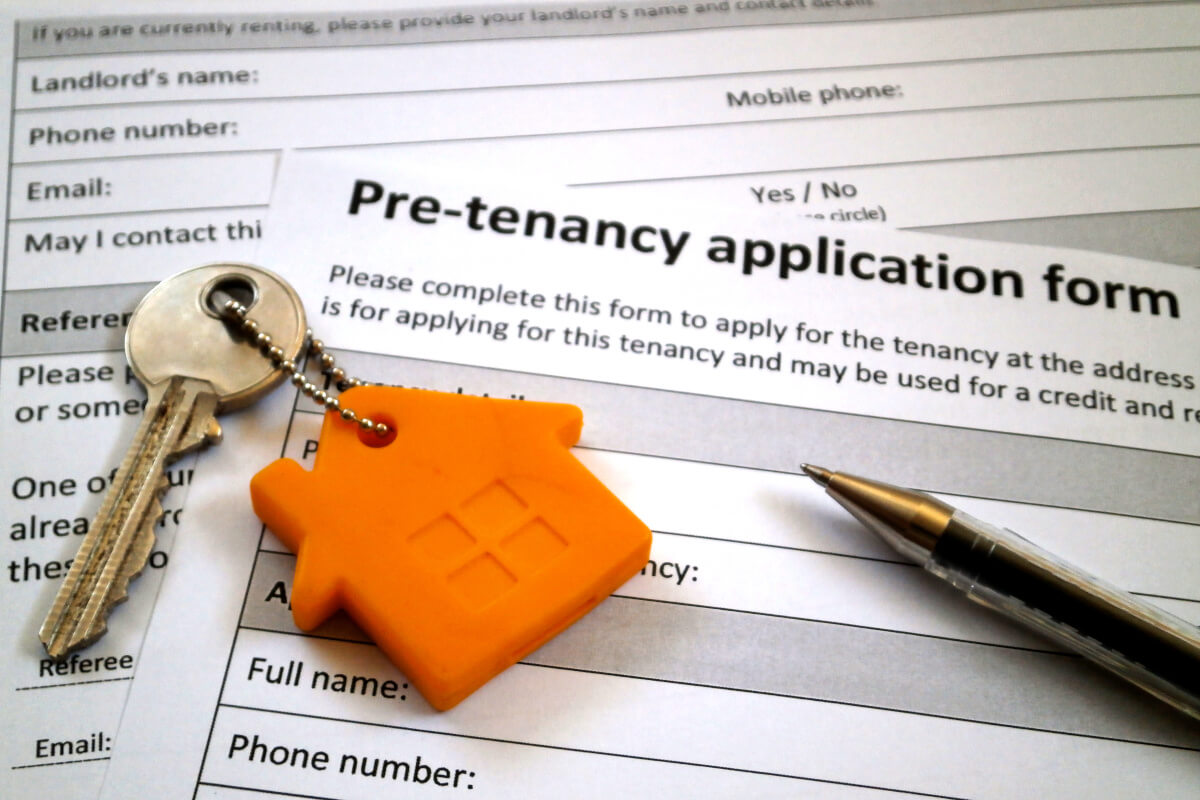First comes a job, and then comes an apartment. Many renters assume this is the only way to successfully land an apartment and comfortably pay rent. However, in today’s dynamic landscape of switching careers, freelancing, and diverse income streams, you’d be surprised how many renters are landing their dream place without a conventional and consistent income.
Whether you’re going back to school, making a job transition, or moving to a new city before landing a gig, there are plenty of plausible reasons to rent an apartment without a job. Regardless of your situation or income status, landing an apartment is all about showing potential landlords that you’re a reliable and trustworthy tenant. In this renter’s guide, we’ll provide you with tips and tricks to help you secure your next apartment without a job.
Navigating the Rental Market Without Traditional Proof of Income
Before applying to an apartment without a job, it’s important to understand the common requirements and expectations of landlords. Typically, landlords and property managers will require proof of income in a rental application through paystubs, bank statements, W-2s, tax returns, or a formal letter from an employer. Landlords ask for these to verify an applicant’s ability to afford the rental, as most require an applicant’s income to be at least three times the monthly rent to be considered.
Despite this common requirement, there are ways to navigate the rental market without conventional proof of income. Below are steps you can take to set yourself up for success before applying for an apartment without a job.

Identify Flexible Landlords
Not all landlords are created equal in the rental world. While some might take the traditional route, others might be more open to tenants of unique circumstances and income streams. Property management companies are typically the former, as they’re known to have stricter application requirements. Meanwhile, private landlords tend to be more flexible, as they aren’t required to follow the same regulations and have more discretion in their renting decisions.
When searching for an apartment, consider listings from private landlords or smaller rental companies who may be more open to alternative forms of income verification. You can also try contacting landlords directly and explaining your situation, as they may be willing to work with you if you can provide other strong references or proof of financial responsibility.
Understand Your Lease Options
Committing to a full-term lease can be intimidating, especially if you don’t have a steady income. Luckily, many rentals offer month-to-month or shorter-term lease options for those seeking a shorter commitment. These leases offer more flexibility to renters without a job, as they buy more time to stabilize income before committing to a year-long lease.
Along with lease lengths, you should also consider other items related to income flexibility. For example, you might want a lease with penalty-free early termination in case you secure a new job in another location. Or you might prioritize finding a rental that allows for subletting or roommates to help cover the rent until you secure employment.

Build a Strong Rental Application
Believe it or not, you can build a strong rental application without holding a traditional job. In your application, consider including a letter to the landlord that articulates your unique circumstances. Perhaps you’re changing career paths, going back to school, or moving to a new city for a fresh start. Whatever your circumstances might be, paint your story in a positive light and explain your career plans moving forward.
You might also want to highlight your reliability as a tenant by touching on your rental history. The best way to do this is to get recommendation letters from former landlords or property managers endorsing your character and reliability. These verifiable references, combined with your personal narrative, will show a landlord that you’re a quality tenant and deserving of an apartment lease.
Tips for Renting an Apartment Without a Job
With a basic understanding of today’s rental market and landlord expectations, you can now begin your apartment search. Below, we’ve listed some additional tips to help you secure your next place without a conventional income stream.
Get a Co-Signer
Enlisting a co-signer is one of the most effective strategies for securing a rental. This is especially beneficial for students who aren’t yet in the workforce. A parent, relative, or trusted friend with strong credit and a stable income are great options for co-signers. By endorsing your tenancy, these individuals can reassure your landlord that you’re a reliable, financially responsible tenant. Having someone with financial credibility vouch for you can greatly enhance your chances of approval and may even lead to better rental terms.

Pony Up Your Savings
Some property managers may be willing to rent to individuals without a job if they can demonstrate sufficient savings to cover several months’ rent. If you have the financial cushion to go this route, be prepared to show proof of your savings. Doing so will alleviate a landlord’s concerns about your ability to pay rent consistently and may persuade them to take a chance on you as a tenant.
Search for Temporary Housing
If you’re moving to a new city without a job, you might consider finding temporary housing until you lock something down. Whether it be staying with friends or family or booking an extended-stay hotel, temporary housing allows you to save up before committing to a long-term lease. Not to mention, staying with friends or family could provide some community and comfort as you focus on your job search.
Showcase Your Credentials
As mentioned earlier, you can still build a strong rental application without formal employment. This can be done by highlighting your credentials, from educational achievements and certifications to positive endorsements from previous landlords or employers. Think of it as a renter’s resume rather than a standard rental application. This proactive approach shows landlords that you’re responsible and ready to establish roots in your new community, making you a more attractive candidate.

Look for a Roommate
If you’re not keen on living alone or want to save money on rent, consider finding a roommate. Not only will this help alleviate the burden of paying rent on your own, but it can also provide a sense of community and support as you navigate your job search. Just be sure to discuss expectations and responsibilities upfront with potential roommates to avoid any conflicts down the line.
Do Your Research
Finally, it’s essential to do your research and be strategic when narrowing down potential apartments. Look for areas with more affordable rents or consider living in a neighboring town or suburb if the cost of living is lower. Additionally, explore rental listings that accept alternative forms of income verification, such as proof of savings or freelance work.
Financial Strategies for Renters Without Proof of Income
While the tips above will aid your apartment hunt, it’s also important to assess your finances from the ground up. Below, we’ve provided some additional financial strategies to get you in a good position to rent an apartment.
Budget Carefully
Managing rent without a steady income stream is all about budgeting. Make a detailed budget that includes all your necessary expenses such as rent, utilities, groceries, transportation, and any debt payments. Then, set aside some of your savings to cover these costs until you secure employment. These budgeting tactics will help you stay on top of your finances and provide a clear picture of what you can afford in an apartment.

Negotiate Rent Rates
Don’t be afraid to negotiate rent rates with potential landlords, especially if you’re able to provide other forms of income verification or references. Landlords are often willing to negotiate on price and terms, as long as it makes sense for both parties involved. Consider offering a higher security deposit or pre-paying several months’ rent upfront in exchange for a lower monthly rate.
Propose a Rent Payment Plan
Another effective strategy is to propose a rent payment plan to your landlord. This could involve paying rent bi-weekly or monthly instead of in a single lump sum, making payments more manageable. Just ensure you have a solid plan and communicate it clearly to the landlord. This approach shows that you are proactive and committed to fulfilling your financial obligations.
Start Your Next Chapter with ForRent

Renting a new apartment often marks the start of a new chapter. However, embracing a new space and a new era can be daunting for renters who don’t have a stable income. But with the right strategies and mindset, it’s entirely possible to find a new space and confidently embark on your rental journey.
By leveraging alternative income verification methods, building a robust rental application, and maintaining a strong financial foundation, you’ll be well-equipped to secure an apartment and start your next chapter with confidence. Whether you’re embarking on a new career journey, going back to school, or simply seeking a fresh start, these strategies will help you navigate the rental market and find somewhere to call home. So go ahead, start your search with ForRent and begin your next chapter today!
This article was originally published by Teresa K. Traverse on September 1, 2015.

